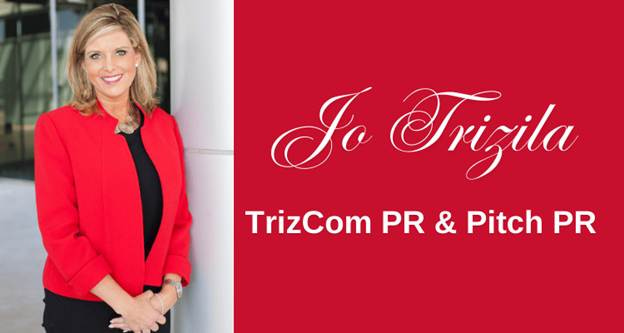Drawing Boundaries Between Grief and the Lens
A practical guide for Central Texas families facing media requests after the Fourth of July floods
This was not the Substack article I had planned (nor one I want to write) for July 8. After the rain-swollen Guadalupe River swept away lives, homes and any sense of normal across Kerr County this holiday weekend, including the young campers and staff at Camp Mystic, privacy became the most urgent beat in my notebook. Families now shoulder two burdens at once: mourning loved ones and negotiating a wall of microphones. Before the cameras roll and the questions fly, let’s pause, breathe and map out how you can honor your story on your terms while the world demands to hear it.
When camera crews’ queue at the gate and your phone keeps buzzing, remember one thing: you owe reporters nothing, not your tears, not your timeline and certainly not your privacy. If you choose to speak, do it on your terms. Below is a victim-centric roadmap for handling media requests, distilled from decades in crisis communications.
Ground rules before you answer a single call
Protect the circle. Grief unfolds best in safe company. Decide who sits inside that circle (family, faith leaders or close friends) and direct all unfamiliar voices to one point of contact.
Buy time. Silence is not suspicious. A brief note such as “We’re processing the situation and will share an update when ready” stops speculation and buys you breathing room.
Know your rights. No outlet can force an interview or film on private property without permission. If someone presses, repeat: “We decline. Please respect our privacy.” Then close the door.
Assign a family spokesperson. Select one person to handle the media so everyone else can focus on healing.
Build a small, sturdy communications team
Family spokesperson. Choose a relative or close friend who feels comfortable on camera, or if available a pastor or pro bono public-relations adviser. One voice prevents contradictory quotes and shields others from repeated questioning.
Gatekeeper. A cousin who loves spreadsheets can log calls, track deadlines and forward only essential queries to the spokesperson.
Daily brief. Ten minutes around the kitchen table or a group text keeps statements consistent and rumors tamped down.
Craft a holding statement and stick to it
A holding statement is about 150-200 words that answers basic questions and sets boundaries:
“Our family is heartbroken over the loss of [name]. We are grateful for rescue teams and community support. We ask for privacy while we honor [name]’s memory and care for each other. Future updates will come through our family spokesperson at [email / phone].”
Post the statement on social platforms, pin it and send it to every reporter who calls. Consistency stops misquotes before they start.
Choose your channel wisely
Written beats live. Email or a texted statement lets you control wording. Live interviews invite surprise questions you may not be ready to field.
Video only if needed. A short, scheduled video call avoids the chaos of satellite trucks in the driveway.
Social media on your schedule. Disable comments if scrolling hurts. Share memorial photos only when you feel ready; screenshots live forever.
Set boundaries and enforce them
Length. Limit interviews to ten-minute blocks. Exhaustion fuels mistakes.
Topics. List subjects you will not address, such as ongoing investigations, medical details or insurance claims, and say so at the outset.
Review. Ask to approve direct quotes before publication. Many reputable outlets honor that request in sensitive situations.
Use support resources
Pro bono PR help. Local agencies often volunteer services after community disasters. A quick ask through a church or nonprofit can secure seasoned guidance at no cost.
Legal counsel. If liability questions loom, an attorney can vet statements so you do not jeopardize future claims.
Mental-health liaisons. Trauma counselors can stand with you during interviews to ground emotions and step in if questions turn invasive.
When you are ready to share the story
Choose outlets that match your goals. A local newspaper rallies community aid, a national network highlights policy gaps and a faith publication emphasizes spiritual perspective. Each platform shapes the narrative differently.
Ask for the angle. Responsible reporters explain their focus, whether rescue efforts, infrastructure gaps or personal tribute. Decline if it feels exploitative.
Request links or airtime. Seeing coverage before it spreads eases anxiety and allows quick corrections.
Sample responses to common media approaches
Situation - Television crews arrive at your doorstep
Quick response - “We are not speaking on camera today. Please contact our family spokesperson at [info]. Thank you for understanding.”
Situation - Late-night call
Quick Response - Let voicemail screen the call. Follow up during daylight if you choose.
Situation - Reporter DM
Quick Response - “Please email our family spokesperson. We are centralizing requests.”
Situation - Live national interview offer
Quick Response - “We will consider after reviewing questions in writing. Can you send them?”
Situation - Reporter quotes rumor
Quick Response - “That information is incorrect. Here is our official statement. Please update your story.”
Your dignity, your timeline
The floodwater’s mark may fade from porch rails, yet sound bites remain online forever. Protect today’s narrative so tomorrow’s memories stay yours. Whether you speak now, later or never, the choice is entirely in your hands.
Guarding Grief in the Spotlight
Compassionate media will respect clear boundaries. State them once, enforce them consistently and let your designated family spokesperson carry the story when, and only when, you are ready.
As a mother who has sent her daughter to camp for seven summers, my heart aches for every family living this nightmare. I picture packing trunks full of sunscreen and hopes, not goodbye hugs, and I am reminded that no story is more precious than the one we write inside our own four walls. Hold that story close, guard it with resolve and know that grief has no deadline.
Until next week, hold loved ones close and remember the story is yours to share or to keep.
Jo
If TrizCom PR can help in any way, please reach out to me at jo@trizcom.com.
About the Author:
Jo Trizila – Founder & CEO of TrizCom PR
Jo Trizila is the founder and CEO of TrizCom PR, a leading Dallas-based public relations firm known for delivering strategic communications that drive business growth and enhance brand reputations as well as Pitch PR, a press release distribution agency. With over 25 years of experience in PR and marketing, Jo has helped countless organizations navigate complex communication challenges, ranging from crisis management to brand storytelling. Under her leadership, TrizCom PR has earned recognition for its results-driven approach, combining traditional and integrated digital strategies to deliver impactful, measurable outcomes for clients across various industries, including healthcare, technology and nonprofit sectors. Jo is passionate about helping businesses amplify their voices and connect with audiences meaningfully. Her hands-on approach and commitment to excellence have established TrizCom PR as a trusted partner for companies seeking to elevate their brand and achieve lasting success. Contact Jo at jo@TrizCom.com.




Wow, this is awesome, Jo. This should be shared with everyone who is suffering such a loss.